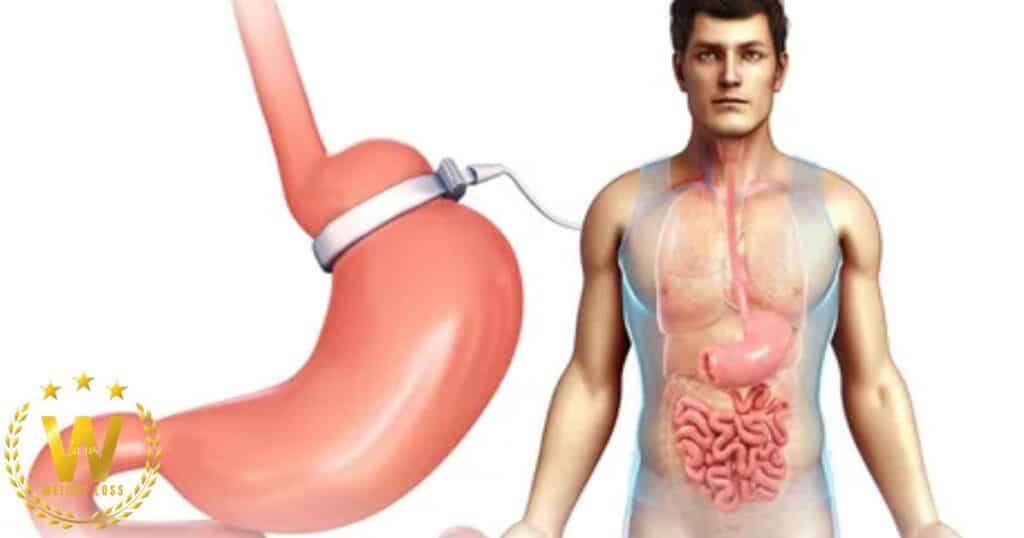After weight loss surgery it’s crucial to avoid alcohol. Because it can be harsh on your healing body. Always consult your doctor about after weight loss surgery. Because they know when it is safe to reintroduce into your lifestyle.
It’s admirable to start a weight loss surgery road towards a healthier you. But one issue remains: Can you celebrate your victory with a glass of wine after surgery? Discover the real story behind the post-op pub challenge.
And explore the fine line between delight and wisdom. Come explore the connection between alcohol and weight loss surgery sip by sip. Because we always share the responsibility of lifting a glass on your journey of transformation.
A lot of people ask what part alcohol plays in their lives after weight loss surgery. Although moderation is usually allowed. It’s important to be aware of the risks and regulations.
It’s better to speak with medical experts before making any decisions on alcohol use following weight loss surgery. Recall that making wise decisions is essential to your transformational path.
Is Combining Alcohol with Weight Loss Surgery Risky?
| Step | Consideration |
| 1 | Consultation: Seek advice from your surgeon or healthcare professional before consuming alcohol post-surgery. |
| 2 | Metabolism Changes: Understand that weight loss surgery can alter alcohol metabolism, potentially leading to increased sensitivity. |
| 3 | Nutritional Impact: Be aware of potential nutrient deficiencies and how alcohol may further impact post-surgery nutritional needs. |
| 4 | Liver Function: Recognize the strain alcohol places on the liver, especially considering the changes after weight loss surgery. |
| 5 | Behavioral Effects: Acknowledge the potential for altered behavioral responses to alcohol post-surgery, affecting tolerance and moderation. |
Post-Bariatric Surgery Alcohol and Smoking

After undergoing bariatric surgery, individuals must consider their alcohol consumption. The procedure can affect how the body reacts to alcohol. This method is more sensitive and affects general health.
It becomes more essential to discuss safe drinking habits with medical professionals. Because they guarantee a successful and healthy post-surgery lifestyle.
It’s important to manage smoking habits following bariatric surgery. Smoking increases the danger of weight reduction surgery and reduces its benefits. It is generally advised to stop smoking.
Because it maximizes the benefits of bariatric surgery and advances long-term well-being. If someone has had bariatric surgery and wants to improve their lifestyle. He can get help from health professionals, who offer resources and help.
What Impact does Weight Loss Surgery have on the Absorption of Alcohol?

Understanding the impact of weight loss surgery on the absorption of alcohol is crucial. The digestive tract changes after operations like gastric bypass or sleeve gastrectomy. Which affects how the body metabolizes alcohol.
After surgery, the decreased stomach capacity and absorption surface area may allow people to feel the effects of alcohol. This increased sensitivity emphasizes the need to approach alcohol consumption with caution.
Seeking advice from medical professionals and encouraging an honest conversation are crucial. While navigating post-surgery lifestyle decisions. Need to comprehend how alcohol interacts with the body’s recovery. In this situation, we make wise decisions and it guarantees a secure and long-lasting recovery.
Study Results on Weight Loss Surgery and Alcohol
The results of the study on alcohol consumption and weight loss surgery show a complicated relationship. Because that goes beyond simple weight loss. This study explores how alcohol metabolism and sensitivity may change in patients.
This highlights the importance of tailored advice. It is imperative to check alcohol consumption following surgery due to the noted modifications in metabolism and tolerance.
These incidents help us to highlight personalized recommendations and lifestyle modifications. Which is beneficial for both patients and healthcare providers. The study highlights how important it is to carry out more research.
This is enhancing our understanding of complex connections between weight loss strategies and alcohol related problems. Besides advancing scientific understanding, these results establish a basis for improved patient care by highlighting. The need for well-informed choices and help while undergoing weight-loss surgery.
The Detrimental Health Effects of Alcohol Use Disorder

Living with alcohol use disorder takes a profound toll on health, encompassing a spectrum of detrimental effects. Apart from the immediate harm to one’s mental and emotional health. Drinking too much alcohol puts vital organs like the liver, heart, and brain at risk.
Individuals who struggle with this illness face difficulties maintaining a healthy lifestyle. Which can show up as poor sleep hygiene, malnutrition, and weakened immune systems.
The effects are not limited to the physical domain. They also affect relationships, the workplace, and the general quality of life. Recognizing the significant health consequences becomes essential to building compassion and help for those negotiating the complex obstacles of alcohol consumption disorders.
A comprehensive and compassionate approach is required to address the complexities of this pervasive health issue. As seen by the detrimental impacts, which vary from physical strain to intricate relationships with mental health.
Alcohol Advice Post Weight Loss Surgery or for Those Considering it

Guidance on alcohol is crucial for those post weight loss surgery or considering it. Weight-loss surgery alters alcohol metabolism, impacting tolerance and sensitivity. Healthcare professionals provide personalized advice.
And helping individuals navigate these changes. Addressing the possible effects of alcohol on life after surgery is crucial for individuals. Those who intend to have surgery to make knowledgeable choices.
Also, consider physiological alterations, increased sensitivity, and tolerance. Whereas controlling the post-surgery alcohol circumstances. A safe approach is ensured by open communication between patients and healthcare providers. It is a good idea to consult with a physician before deciding on surgery.
Because they have groundwork for long term lifestyle adjustments connected to health. To maximize post-surgery outcomes, this collaborative effort prioritizes proactive decision-making for long-term well-being.
Can you Drink Alcohol after Gastric Sleeve Surgery?

Patients often have concerns about their alcohol intake. When they think after gastric sleeve surgery or while considering the procedure. The size and functionality of the stomach have an impact on the absorption and tolerance of alcohol.
Which is altered via gastric sleeve surgery. Healthcare practitioners tell moderation and close observation. And stressing the importance of comprehending how the body reacts to alcohol after surgery.
It is important for anyone thinking about having gastric sleeve surgery to understand the effects of alcohol use. Different responses to alcohol may result from the gastrointestinal system’s alterations following surgery.
It is imperative to consult healthcare specialists about the appropriateness and limitations of alcohol consumption. To make well-informed decisions and sustain a healthy lifestyle following surgery. Transparent communication guarantees that people receive tailored guidance. Which promotes a secure and fruitful rehabilitation process.
Can You Drink Alcohol After a Bypass Surgery?
Life after bypass surgery sparks questions about alcohol consumption. While generally possible, it requires thoughtful consideration. The surgery alters metabolic processes, and potential medication interactions necessitate moderation and healthcare consultation. Immediate post-surgery alcohol intake.
Is often discouraged to allow the body adjustment time. Heightened sensitivity and risks, like potential impacts on liver function, emphasize the need for a mindful approach. Personalized advice from healthcare providers is crucial for navigating alcohol consumption post-bypass surgery, and aligning with individual health goals.
For those contemplating bypass surgery, understanding alcohol’s implications post-operation is vital. Balancing health goals with potential risks involves informed decisions. Choosing to consume alcohol post-bypass surgery requires consideration of individual factors, medical advice, and long-term well-being.
Open communication with healthcare professionals ensures personalized guidance, allowing individuals to embrace a post-surgery lifestyle aligned with their health objectives.
What Alcoholic Drinks Are Good for Bariatric Patients?

Navigating alcoholic choices after bariatric surgery requires thoughtful consideration. Opting for clear spirits like vodka, gin, or tequila with low-calorie mixers is often recommended due to their lower calorie and carbohydrate content.
It’s crucial to steer clear of sugary cocktails, beer, and overly sweetened drinks that may disrupt weight loss progress or cause discomfort.
Prioritizing moderation and staying hydrated is key for bariatric patients. Consulting healthcare professionals for guidance ensures that alcohol choices align with individual health needs.
Making informed decisions about alcoholic beverages supports a healthier and more mindful post-bariatric surgery lifestyle, promoting long-term well-being and successful recovery.
Why Can’t You Drink After Bypass?

Life after bypass surgery comes with guidelines and refraining from alcohol is often one of them. Bypass surgery alters the digestive system, affecting how the body processes substances like alcohol.
Consuming alcohol too soon after the procedure may lead to complications, including increased sensitivity and potential interactions with medications.
The initial post-surgery period requires the body to adapt, and introducing alcohol too early can hinder this process. Beyond the immediate recovery phase, bypass patients may also need to be mindful of alcohol due to potential impacts on liver function and overall well-being.
Following healthcare professionals’ advice about abstaining from alcohol is crucial, ensuring a smoother recovery and long-term success in maintaining a healthy post-bypass lifestyle.
Can Heart Patients Drink Alcohol?

- Individual Variability: The impact of alcohol on heart patients can vary based on factors such as the type and severity of the heart condition, medications, and overall health status.
- Moderation is Key: Moderate alcohol consumption may be acceptable for some heart patients. It’s crucial to define what “moderation” means based on individual health circumstances.
- Consultation with Healthcare Professionals: Heart patients should consult their healthcare providers before consuming alcohol. Medical advice ensures alignment with specific health conditions and medications.
- Understanding Medication Interactions: Some cardiovascular medications may interact negatively with alcohol. Knowledge of potential interactions is essential for heart patients.
- Effect on Blood Pressure: Alcohol can affect blood pressure levels. Heart patients, particularly those with hypertension, should be mindful of this impact.
- Cardioprotective Qualities: Some studies suggest that moderate alcohol consumption, especially red wine, may have cardioprotective effects. However, individual responses vary.
- Risk of Arrhythmias: Excessive alcohol intake may contribute to irregular heart rhythms (arrhythmias). Heart patients should be aware of this risk.
- Caloric Content: Alcoholic beverages often have high caloric content. For heart patients managing weight, understanding the caloric impact is crucial.
- Dehydration Concerns: Alcohol can contribute to dehydration, potentially impacting heart function. Staying adequately hydrated is essential for heart health.
- Observation of Symptoms: Heart patients should be vigilant for any adverse reactions or symptoms after consuming alcohol. Any unusual effects should be promptly reported to healthcare providers.
FAQ’s
How Does Weight Loss Surgery Affect Alcohol Tolerance?
Weight loss surgery can often lead to increased alcohol sensitivity, as the body’s ability to metabolize alcohol may change.
Is it Safe to Consume Alcohol Immediately after Weight Loss Surgery?
Immediate post-surgery alcohol consumption is typically discouraged due to the heightened sensitivity and potential interactions with medications.
Can Alcohol Hinder Weight Loss Progress after Surgery?
Yes, excessive alcohol consumption can contribute to caloric intake and may interfere with weight loss goals.
How Does Alcohol Affect Hydration After Weight Loss Surgery?
Alcohol can contribute to dehydration, which is particularly important to monitor post-surgery.
Conclusion
The answer to the topic of whether alcohol consumption is permitted. Following weight loss surgery requires careful evaluation of each patient’s unique health circumstances and post-surgical modifications.
A cautious and informed approach is required due to the surgery’s impact on alcohol metabolism, heightened sensitivity, and potential hazards, even if it is possible. Through individualized guidance and monitoring, healthcare professionals play a crucial role in helping individuals navigate the post-surgery path.
After weight reduction surgery, choosing to drink alcohol should be in line to lead a healthy lifestyle, with moderation and awareness being two important tenets.
Through recognition of the personalized aspect of this choice and the promotion of candid dialogue with medical professionals. Patients can manage the intricacies of alcohol intake following surgery while enhancing their general health.

Bookish Bard, known as Weightloss, boasts 8 years of expertise in the field. A seasoned author, Weightloss combines literary prowess with extensive knowledge, crafting insightful works that inspire and inform.











